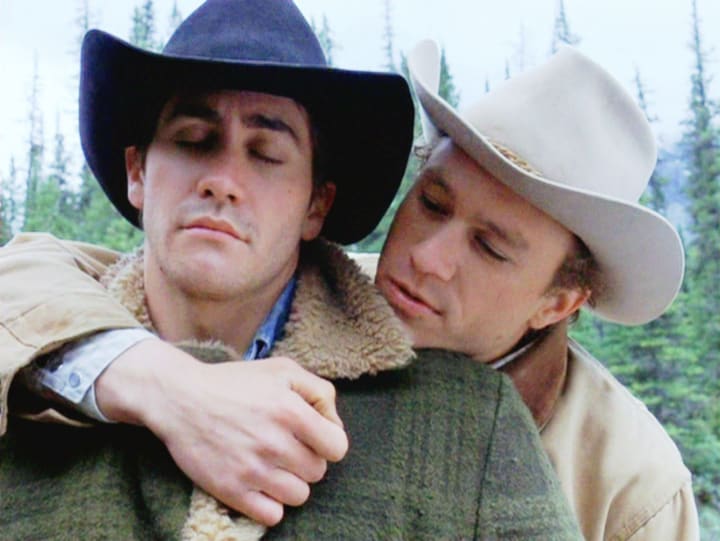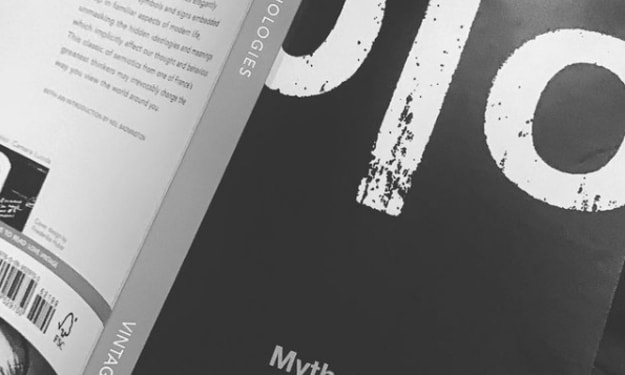A Filmmaker's Guide to: LGBTQA+ Cinema
Film Studies (Pt.70)

In this chapter of ‘the filmmaker’s guide’ we’re actually going to be learning about literature and film together. I understand that many of you are sitting in university during difficult times and finding it increasingly hard to study and I understand that many of you who are not at university or not planning on it are possibly stuck of what to do, need a break or even need to catch up on learning film before you get to the next level. This guide will be brief but will also contain: new vocabulary, concepts and theories, films to watch and we will be exploring something taboo until now in the ‘filmmaker’s guide’ - academia (abyss opens). Each article will explore a different concept of film, philosophy, literature or bibliography/filmography etc. in order to give you something new to learn each time we see each other. You can use some of the words amongst family and friends to sound clever or you can get back to me (email in bio) and tell me how you’re doing. So, strap in and prepare for the filmmaker’s guide to film studies because it is going to be one wild ride.
LGBTQA+ Cinema

What is it?
LGBTQA+ issues are a big part of our lives nowadays seeing as, thankfully, their lives are becoming more normalised and accepted by society. Films about this, therefore, are a great way of informing the masses about the history, the current affairs and the identities that are involved with these wonderful people and their strength through adversities they receive. LGBTQA+ cinema may be young, but it is very popular as LGBTQA+ people require representation and cis-heterosexual people require education in their identities and lives.
I believe that LGBTQA+ literature still is not widely read enough to be considered 'mainstream'. It is still 'different' and 'niche' whereas it needs to be normalised so that we can all live in peace together, understanding each other and we can therefore be more aware of people who exist in different spaces to our own. Literature that covers LGBTQA+ issues include - and some of these are among my favourite novels of all time:
- Just Above My Head by James Baldwin
- Aristotle and Dante Discover the Secrets of the Universe by Benjamin Alire Saenz
- Oranges Are Not the Only Fruit by Jeanette Winterson
- On Earth We're Briefly Gorgeous by Ocean Vuong
- Boy Meets Boy by David Levithan
- Orlando by Virginia Woolf
- The Picture of Dorian Gray by Oscar Wilde
- The Well of Loneliness by Radclyffe Hall
- The Hours by Michael Cunningham
- Fingersmith by Sarah Waters
- The Song of Achilles by Madeline Miller
Basically anything by Mary Renault and Benjamin Alire Saenz, even the works of Virginia Woolf can be categorised and considered as slightly more LGBTQA+ than what the world was used to at her time.
What about in film?

Recently, LGBTQA+ cinema has become far more popular than it ever has been and honestly, it is one of the best turns in cinema I have ever seen. New stories, new narrative and brand new characters, people and historical figures who were once blanked from the pages are finally being acknowledged for their work on human rights. Films like "The Danish Girl" which tells the story of Lili Elbe, a transgender woman who gender affirmation was one of the first of its kind. She was also a painter of the twentieth century art movement, she was a lover and she was also a brilliant human being. Her story has been made into an Oscar-Winning film which quickly became one of my personal favourite films of all time.
Other LGBTQA+ films include:
- Moonlight
- Call Me By Your Name
- Peacock
- Brokeback Mountain
- The Danish Girl
- My Own Private Idaho
- The Favourite
- Dallas Buyers Club
- The Handmaiden
- The Hours
- Breakfast on Pluto
- Carol
- Portrait of a Lady on Fire
- My Beautiful Laundrette
- Mysterious Skin
Let us now have a look at some great further reading you can do to have a look into some LGBTQA+ and Queer Theory criticisms of film and literature, deeply analysing the new narratives that really are not new at all. These people should not need permission to exist. They exist. They always have and always will and honestly, they are some of the greatest people ever.
Further Reading:
- Bradway, T (2019). After Queer Studies: Literature, Theory and Sexuality in the 21st Century (After Series). UK: Cambridge University Press.
- Elliot, P (2016). Debates in Transgender, Queer, and Feminist Theory: Contested Sites (Queer Interventions). UK: Routledge
- Herring, S (2015). The Cambridge Companion to American Gay and Lesbian Literature. UK: Cambridge University Press
- Somerville, S.B (2020). The Cambridge Companion to Queer Studies. UK: Cambridge University Press.
- Stevens, H (2010). The Cambridge Companion to Gay and Lesbian Writing. UK: Cambridge University Press.
About the Creator
Annie Kapur
200K+ Reads on Vocal.
English Lecturer
🎓Literature & Writing (B.A)
🎓Film & Writing (M.A)
🎓Secondary English Education (PgDipEd) (QTS)
📍Birmingham, UK






Comments
There are no comments for this story
Be the first to respond and start the conversation.